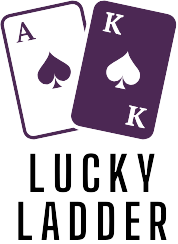Every poker player has been there—sitting at the table, feeling like a champion, only to realize their chips are vanishing faster than a magician’s rabbit. So what gives? It’s time to uncover those sneaky poker leaks that could be draining your bankroll faster than a bad beat.
Table of Contents
ToggleUnderstanding Poker Leaks
Poker leaks refer to the hidden mistakes players make, impacting their overall performance. Identifying these leaks can significantly improve their game and lead to increased winnings.
What Are Poker Leaks?
Poker leaks are strategic flaws in a player’s approach that result in unnecessary losses. These errors aren’t always obvious and often stem from poor decision-making, emotional play, or lack of knowledge about the game. Recognizing these issues requires critical self-analysis and game review. Each player faces unique leaks based on experience and style. Efforts to uncover these leaks often involve studying hand histories and tracking patterns.
Common Types of Leaks
Several common types of leaks affect players. One prevalent leak includes playing too many hands out of position, which can lead to difficult situations. Another leak involves overvaluing hands, where players continue betting despite unfavorable board changes. Mismanagement of bankroll frequently causes losses, as players may enter games above their skill level. Additionally, failing to adjust to opponents’ strategies can result in missed opportunities. Lastly, emotional decision-making affects gameplay, as tilting often leads to impulsive actions. Each type of leak should receive attention to strengthen poker skills.
Identifying Your Own Leaks

Discovering personal leaks requires honest self-reflection and a commitment to improvement. Players must recognize their unique patterns and mistakes to enhance their performance.
Self-Analysis Techniques
Engaging in self-analysis leads to greater awareness of game habits. Players can ask themselves targeted questions about their decision-making processes. Evaluating emotional states during critical moments often reveals problematic behavior. Keeping a journal of experiences provides valuable insights over time. Noticing tendencies like over-aggression or passivity helps identify specific leaks. Implementing routine post-session reflections allows for continuous growth.
Using Hand History Review
Reviewing hand histories serves as an effective tool for spotting leaks. Players should analyze significant hands played during sessions. Examining bet sizing, position, and opponents’ actions can highlight mistakes. Identifying trends in losses and wins provides context for decision accountability. Utilizing dedicated software simplifies the review process and pinpoints areas requiring attention. Interaction with poker forums often sparks discussions that lead to new perspectives on common errors.
Tools for Finding Poker Leaks
Identifying poker leaks requires the right tools to streamline the analysis process. Various software options and methods exist to enhance a player’s ability to track their game.
Software Options
Utilizing poker tracking software can provide invaluable data insights. Popular options like PokerTracker and Hold’em Manager allow players to analyze hand histories and track performance metrics. These programs generate detailed reports on win rates, positional play, and specific opponent statistics. They also help identify trends, such as frequent mistakes or overly aggressive play. Players can input custom filters to isolate specific situations, making it easier to focus on weak areas. Enhanced analysis from these tools leads to informed adjustments in gameplay.
Tracking Progress
Maintaining a log of performance can significantly impact a player’s growth. Players can document their sessions, noting key hands, decisions made, and emotional states. Regularly reviewing this journal helps identify recurring mistakes and patterns. Engaging with the community on poker forums also promotes accountability. Forums provide platforms for discussing hands and receiving feedback from peers. Tracking progress aids in recognizing improvements over time, encouraging a continuation of effective strategies while addressing leaks. Consistent reflection on play enhances overall understanding and mastery of the game.
Strategies to Fix Poker Leaks
Addressing poker leaks requires a strategic approach to refining gameplay and enhancing overall performance.
Adjusting Your Gameplay
Modifying one’s gameplay can lead to significant improvements. Playing fewer hands, especially out of position, often reduces loss opportunities. Focus on hand selection, playing stronger hands while folding the weaker ones. Implementing a balanced approach to aggression is essential, as overly aggressive play can result in costly mistakes. Evaluating bet sizing helps prevent unnecessary bluffs and keeps opponents guessing. Adjustments based on specific opponents’ behavior create opportunities for exploiting weaknesses. Applying these changes consistently fosters growth in a player’s skill set and decision-making capabilities.
Seeking Professional Help
Consulting a poker coach can provide invaluable insights. Coaches offer tailored strategies, focusing on individual strengths and weaknesses. Receiving professional feedback enhances self-awareness and helps identify persistent leaks. Participating in group coaching sessions encourages interactive learning and the exchange of ideas. Many players benefit from participating in online poker training sites, where structured lessons are readily available. Utilizing recorded session reviews allows players to analyze gameplay with a professional’s perspective, leading to faster improvements. Engaging in this kind of mentoring accelerates skill enhancement and brings about a deeper understanding of the game.
Conclusion
Identifying and addressing poker leaks is crucial for any player looking to improve their game. By engaging in honest self-reflection and utilizing analytical tools players can uncover hidden mistakes that lead to unnecessary losses. Techniques such as reviewing hand histories and maintaining a performance log not only highlight areas for improvement but also foster a deeper understanding of personal gameplay tendencies.
Implementing strategic adjustments and seeking professional guidance can further enhance a player’s skills. With dedication and the right resources players can transform their approach and significantly increase their winnings. Embracing this journey of self-improvement ultimately leads to a more rewarding poker experience.




